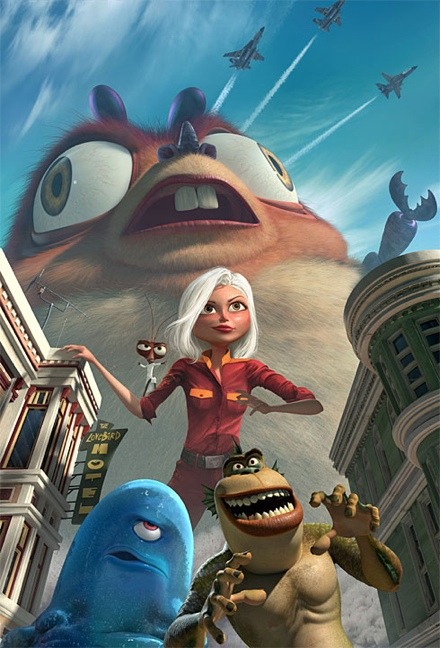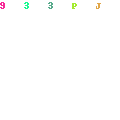The very first woman encountered in the Old Testament is Eve, Adam's wife in the Garden of Eden. Eve is created after Adam is created, because God has neglected to make a companion for Adam. While he sleeps, God removes one of Adam's ribs and it is from this rib that Eve comes into existence, and just as Adam has given everything a name he says "'she shall be called woman, because she was taken out of man'"(Genesis 1:23). It is Adam that has formed Eve's personality, as she becomes the "other" to his subject. This distinction regarding the creation of men, before women, is a patriarchal construct that allows for the subordination of women to men without question or causation. As the other, Eve is formed by the patriarchy around her as a model for the behavior that women should assume. Eve becomes a domesticated woman, because God has given Adam dominion over her, the assumed weaker sex. But, whether a woman is domesticated a not she is "a woman. She only becomes a domestic, a wife, a chattel, a playboy bunny, a prostitute, or a human dictaphone in certain relations" (Rubin). This certain relation seems to be decided by a man very early on, as Eve is taken to be the wife of Adam right at the moment of her inception. Her creation, her mere existence, is predicated upon her ability to please another -- a man -- and has nothing what so ever to do with finding her own identity. Her identity has been chosen.
According to Genesis, and the account of the Fall of Man, it is Eve who is first tempted by the serpent in the Garden of Eden to eat from the fruit of the tree of the knowledge of good and evil, and in this action she commits the sin of pride against God. The serpent had told Eve that in eating from the tree of the knowledge of good and evil, she and Adam would become "like God, knowing good and evil"(3:5) and it is in that desire, or arrogance, to be like God that she is responsible for the Fall. Although it is Eve who first eats from the tree, Adam also eats and he has also broken his promise to God. However, Modern Feminists would argue that "women.. are innately capable of offering a different ethics from men, one more attuned to preserving the Earth from destruction by weapons devised by men. Men must abstract themselves from the material world as they separate from mothers in order to acquire a license to enter the patriarchate, and they consequently adopt a violent and aggressive posture toward the world left behind"(Rivkin). Rivkin's argument would imply that for Eve to know good and evil would not be as harmful as for Adam to know these things, because women are not naturally violent and aggressive the way that men are. Since men are responsible for all the wars, and rapes, around the world since the Fall then it would not be appropriate to blame the Fall entirely on Eve. Also, if Eve is considered "flesh of [his] flesh", then perhaps she was only acting on an impulse that was also present within Adam.
In this first act, Eve, and all women, are punished more severely. God says to Eve, when he has learned that they have eaten from the tree of the knowledge of good and evil that "'I will greatly multiple your pain in childbearing; in pain you shall bring forth children, yet your desire shall be for your husband, and he shall rule over you"(3:16). Adam is also cursed, and his curse is that he will have to toil the land in order to have sustenance. God had established a "sex/gender system" which is "the set of arrangements by which a society transforms biological sexuality into products of human activity, and in which these transformed sexual needs are satisfied"(Rubin). By instructing Adam to till the land while Eve bears his children, he is established a patriarchal sex-roles, especially since Eve is being told that Adam will rule over her as her husband. This has been a huge influence of Western culture where men have primarily been seen as the head of the household, and all decisions regarding the family (finances, children, discipline, religion, politics) were left to the man of the house to decide. This has also led to the belief in many cultures that the woman's "place is in the home", where she is domesticated to cook and clean and bear children. Now, granted, a woman's biology seems to indicate that it would be her giving birth to children, and not her husband, but it is the intrinsic subordination that seems to be implied in Genesis that has forced women into specific roles based merely on their biological sex. Rubin believes that "sex as we know it -- gender, identity, esxual desire and fantasy, concepts of childgood -- it itself a social product", meaning that society has informed the way we view ourselves and others, and that societal influences such as religion, or the Bible, have helped to form these constructs.
The next female figure we hear specific mention of in the book of Genesis is Sarai, Abram's wife. Immediately we are told that "Now Sarai was barren; she had no children"(11:30). This information seems at first to be somewhat irrelevant to the story, but then it makes sense when we recall the way Eve was regarded as Adam's wife, and told that she would bear children unto Adam as her duty as wife to him. It would then be Sarai's duty to do the same for Abram because "there is, in an initial phase, perhaps only one "path," the one historically assigned to the feminine: that of mimicry. One must assume the feminine role deliberately. Which means already to convert a form of subordination into an affirmation"(Irigaray). The path that Sarai wishes she could follow, the "one" path that she must mimic is that of motherhood, following in the path of the first mother, Eve. Being barren then in a sense steals Sarai of her role within her society, making her useless. In essence, that is why we are told that Sarai is barren. Whether she is loved as Abram's wife or not, we are to understand that she is not going to bring any wealth onto her husband through her womb. Why would Abram have a wife if she was not going to be capable of bearing him children? Irigaray believes that "history, in which man begets man as his own likeness, wives, daughters, and sisters have value only in that they serve as the possibility of, and potential benefit in, relations among men". In this view, Abram would see Sarai more as a tool, or a piece of personal wealth and less like a partner, which is the more modern take on the intermarriage relationship today.
This is exactly what Abram does to Sarai. He uses her as a tool in order to get what they want. Upon entering the land of Egypt with his wife Sarai, Abram asks her to pretend that they are brother and sister. He does not want to acknowledge the marriage between them because he says that "'I know that you are a beautiful woman to behold; and when the Egyptians see you, they will say 'This is his wife'; then they will kill me, but they will let you live. Say you are my sister, that it may go well with me because of you, and that my life may be spared on your account'"(12:11-12:13). This is exactly what Sarai does, and she is taken from Abram by the Pharoah of Egypt to go live at his house, and presumably be his concubine. Abram is acting as a pimp to his wife, and using her beauty to save his own life by allowing the Pharoah to take her. Perhaps the fact that she was barren and unable to bear children meant that Abram would not be worried about her conceiving a child from the Pharoah, but either way he is trafficking her. It works because "the society we know, our own culture, is based upon the exchange of women. Without the exchange of women, we are told, we would fall back into the anarchy of the natural world, the randomness of the animal kingdom. The passage into the social order, into the symbolic order, into order as such, is assured by the fact that men, or groups of men, circulate women among themselves"(Irigaray). Abram has circulated Sarai as a piece of property that has value to the Pharoah and to himself, and that is why he is married to her even though she is barren. Regardless of her inability to bear children unto Abram, she is still a sexually accessible female, and a desirable one at that. She has value, even if it is only manifest through sexual desire, and her desire is high because she is very attractive and because "the most desirable women must form a minority"(Irigaray) in order to have true value.
After Sarai is returned, and she an Abram has settled "And Sarai said to Abram, 'Behold now, the Lord has prevented me from bearing children; go in to my maid; it may be that I shall obtain children by her.' And Abram hearkened to the voice of Sarai. So, After Abram had dwelt ten years in the land of Canaan, Sarai, Abram's wife, took Hagar the Egyptian, her maid, and gave her to Abram her husband as a wife. And he went in to Hagar, and she conceived"(16:1-16:4). How is it possible that Sarai can give Hagar to Abram? As a servant, she must have assumed a piece of property and her womb was therefore also property of Sarai and Abram. This first representaton of polygamy in the Bible is justified by Sarai's own inability to conceive children, but it is also an indication of Abram's value. Because women have value and are viewed as possessions to Abram, he wants to attain as many as possible. One will not do, especially if that one is barren. The exchange of Hagar, from going to housemaid to wife of Abram, shows that the Bible is ladden with patriarchal impositions regarding the wealth, place, and role of a woman. Hagar is allowed to be Abram's wife, and gives birth to his son Ishmael, but she is driven off once God grants Sarai, or Sarah, the ability to bear children for Abram, or Abraham. Sarai was being representative of the stereotypical submissive woman, who will allow her husband access to anything he desires merely because what she desires is to please him. Sarai's "essential virtue, in other words, is that her virtue makes her man 'great'. In and of herself, she is neither great nor extraordinary"(Gilbert and Gubar). Sarah is one of the first examples of women being taught to please men, even at the cost of perhaps their own happiness. Sarah was jealous when she saw that Hagar had given birth to a son for Abram, because she had wanted to give him a child. She ignored her jealousy, and sacrificed her own happiness for that of her husbands.
Sarah's behavior would be typical of that archetypical woman, the angel of the house. Her whole word revolves around subordination to a man, and her whole identity is wrapped up inside the fact that she has a relationship to a man. Throughout the Bible, women are constantly referred to by their name, and then a reference to who their husbands are. But the same is not true of men. Their identities stand alone, like their names. Genesis does not refer to Abram as "Abram, Sarah's husband", because he is Abram. He is the one in the possession of Sarah, he does not belong to her in the sense that she belongs to him.
This type of view of society, the patriarchal structure, has had a huge impact on the world in which we live, although modern people may not recognize it. Our families, our histories, are traced through the lines of our families. When a couple marries, the woman is absorbed into the family of the man and give his name. Their children will be given his name, and any identity she had before that will be obliterated, as if all trace of her former self is no longer important. Women are typically expected to be the stay-at-home parent, if one parent is going to be staying at home. That is because women are forced to assume the role of mother and wife, just like Eve and Sarah before.
Modern day feminists have combated these ideas of female subordination, and the idea that our roles inter-sexually are written in stone, just like Moses's commandments. However, the Bible is such a strong influence on culture, and informs women about their roles before they even realize they are being informed of them, that it is doubtful that in the Western world we will ever escape the male-imposed roles, and the overshadowing of our lives by that of our husbands. They say "behind every great man, there has to be a great woman", but why is she behind? One day, women will no longer be afraid to take the forefront. This does not mean rejecting the roles of wife and mother, but it does mean rejecting the notion that these roles are what we must become and not what we can become if we so choose. Women of the world today are granted the freedom of choice, unlike our female predecessors, who may not have had the same options.
Work Cited
Bible (King James Version). London: Thomas Nelson
Publishers.
Publishers.
Gilbert, Sandra and Susan Gubar. “The Madwoman in the Attic.”Literary Theory: An
Anthology. 2nd ed. Ed. Julie Rivkin and Michael Ryan. Malden: Blackwell, 2004. 812-
825.
Anthology. 2nd ed. Ed. Julie Rivkin and Michael Ryan. Malden: Blackwell, 2004. 812-
825.
Irigaray, Luce. "The Power of Discourse and the Subordination of the Feminine." Literary Theory: An Anthology. Ed. Julie Rivkin and Michael Ryan. Malden, MA: Blackwell Publishing, 2004. 795-798.
Irigaray, Luce. "Women on the Market" Literary Theory: An Anthology. Ed. Julie Rivkin and Michael Ryan. Malden, MA: Blackwell Publishing, 2004. 799-811.
Rubin, Gayle. "The Traffic in Women" Literary Theory: An Anthology. Ed. Julie Rivkin and Michael Ryan. Malden, MA: Blackwell Publishing, 2004. 770-794.
Rivkin, Julie and Ryans, Michael. "Introduction: Feminist Paradigm." Literary Theory: An Anthology. Ed. Julie Rivkin and Michael Ryan. Malden, MA: Blackwell Publishing, 2004. 765-769.






